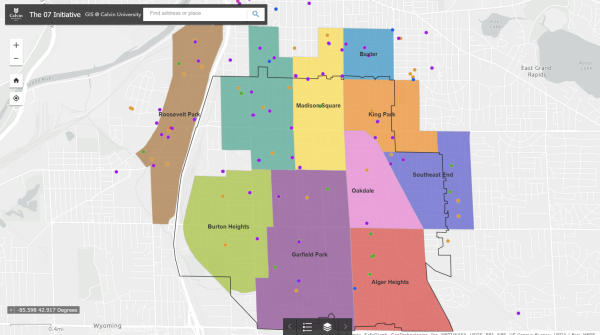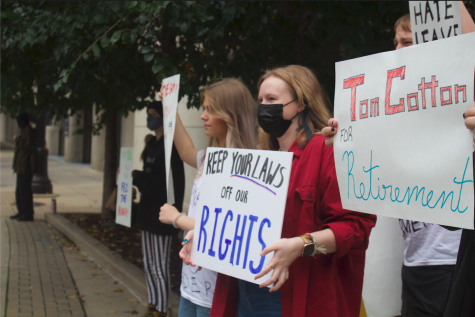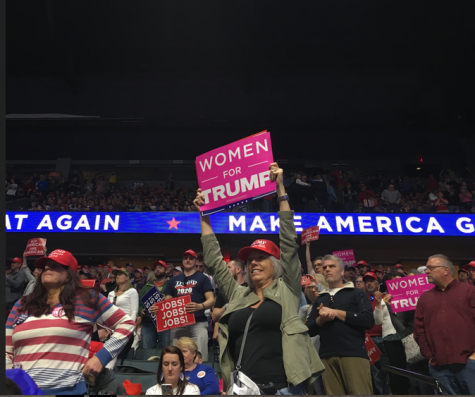Grand Rapidians march in support of science
Hundreds of Grand Rapids science advocates will take to the streets this Saturday.
March For Science Grand Rapids — which also coincides with this year’s national observance of Earth Day — is a satellite of the national March for Science in Washington, D.C.
The march is being organized by Sandra Bacon, a retired chemistry teacher, and Summer Madrid. Bacon said that although they have no monetary sponsors for the march, there’s plenty of moral support to go around.
Kelly Darcy, the march’s PR volunteer, said in an interview with Michigan Radio that the local march was organized so that people “who don’t have the funds to make it out to DC” can still show their support for science.
Local marches like the one in Grand Rapids are important because scientific research influences everyone’s lives, Darcy argued. “If we don’t support science, it affects every single person.”
She and Elizabeth Arnold of Grand Valley State University (GVSU) cited concern about a “lack of attention to science in terms of making policy” as a motivating factor for the march. Arnold hopes to support “clean water, clean air, health care, and the health of all people” through the message of the march.
Several Calvin professors, staff members students plan to attend the march.
“For me, it is important to show up to this type of event to try and convey that facts do matter, and that scientific evidence isn’t opinion, fabricated to promote some left-wing agenda. Rather, scientific data is discerned through hard work, careful study and thorough analysis,” said Calvin chemistry professor Carolyn Anderson.
“While scientists don’t always get it right initially, when many different labs all converge from different perspectives on the same conclusion, for example the impact of humans on climate change, the facts are exactly that — facts, and they shouldn’t be discarded when they are economically inconvenient.”
Virginia Van Andel, a database administrator for Calvin Information Technology, is also attending — and it’s her first time at a demonstration of this kind. “The well-being of the creation and the environment globally matters to me deeply,” Van Andel said, explaining what compelled her to march.
“I just feel that I need to do something,” Van Andel added. She hopes to invite family and friends, too. Van Andel sees the march as an educational opportunity, explaining that she hopes to become “better informed about what people who support science could do” to better counter anti-science sentiment.
Doug Kindschi, a professor of philosophy and mathematics and the director of the Kaufman Interfaith Institute at GVSU, will speak at 10:30 to kick off the march.
Several graduate students, as well as Bill Wood, the executive director of West Michigan Environmental Action Council, will also give brief remarks before the march.
The march will begin at GVSU’s Pew Campus and cross the Grand River to head towards Rosa Parks Circle.
Meanwhile, marches in Lansing and D.C. will bring science supporters to the capitol steps.
Calvin student Noah Praamsma is headed to Lansing this Saturday. “As a student in the sciences, it’s frustrating to see national decisions being made that value politics above science,” he said.
“I hope that this march sends the message that we want to see the well-being of our planet protected, as well as a public empowered to be scientifically literate through honesty and truth-telling.”
This question of message has caused strife for the national March for Science organizers, as they have been accused of turning science political. As a result, the national march has tried to emphasize “supporting” and “celebrating” science, rather than attacking the Trump administration.
Their website identifies the national marchers as “nonpartisan” and defends itself against the charges of politicization:
“The march has generated a great deal of conversation around whether or not scientists should involve themselves in politics. In the face of an alarming trend toward discrediting scientific consensus and restricting scientific discovery, we might ask instead: can we afford not to speak out in its defense?”







